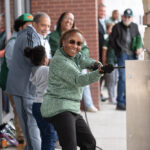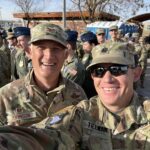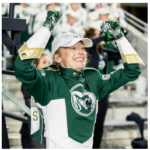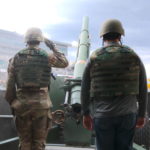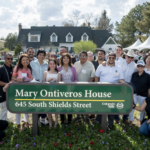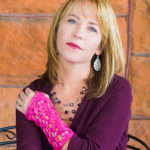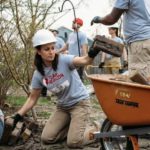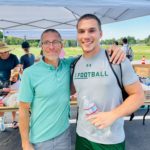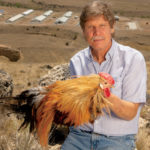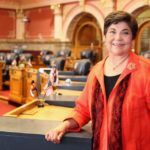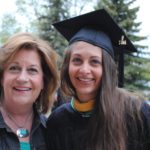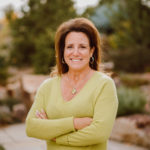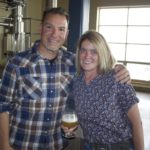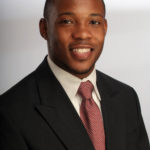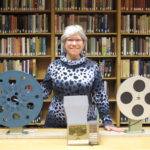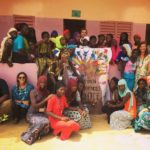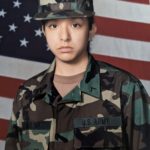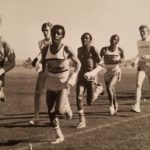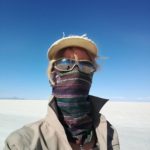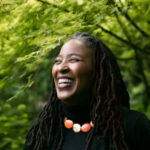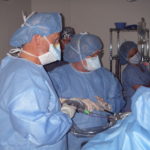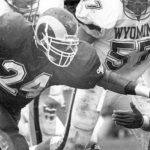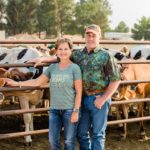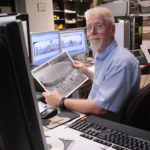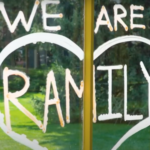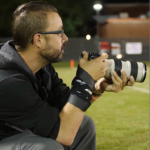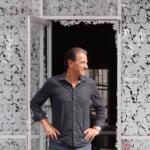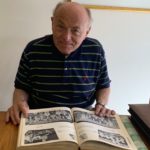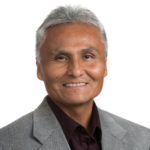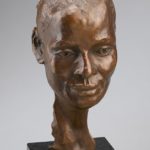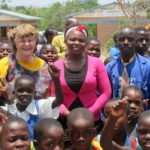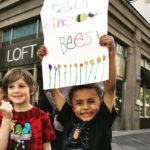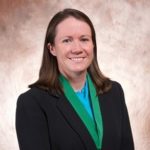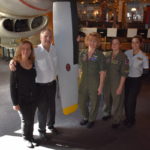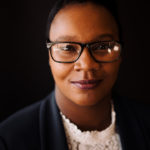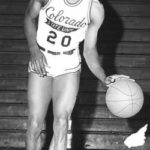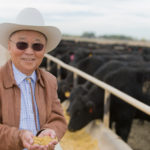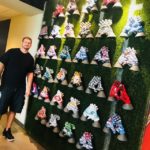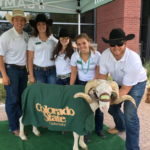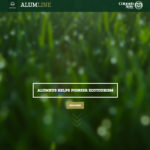In December 2018, Dana Hughes (B.A., ’98) took to the Commencement stage to deliver a speech to graduates of the College of Liberal Arts. In that rousing speech, Hughes navigated classic commencement themes extolling the importance of believing in yourself, doing what you love, and being unafraid to take risks. But Hughes did more than spout inspirational clichés, she showed the new grads how she herself has lived those virtues throughout her professional life that has included careers in acting, investigative journalism (which won her an Emmy when she was part of ABC News), and with the United Nations.
As her speech concluded, Hughes, with a little help from Beyonce’, left the audience with her most important piece of advice: “Choose to be ‘here.’ Not Instagram here. Really here. Whatever your ‘here’ is now and will turn out to be. I promise if you do that, you’ll know who you are, you’ll do what you love, you’ll take the risks, and you’ll make an impact.”

Today, Hughes is the deputy head of global communications for the UNHCR, the UN Refugee Agency, where she uses her expertise as a storyteller to advance social justice for refugees around the world. AlumLine had the chance to speak with Hughes to understand her role at the UNHCR, see if the advice she gave during her commencement speech six years ago stills holds true, and learn where her “here” is these days.
The following interview had been edited for clarity and length.
AlumLine: In your commencement speech, you explained that you’ve been an actor, an Emmy-award-winning investigative journalist with ABC News, and then a humanitarian with the UNHCR. Can you expand more on what being a humanitarian means to you, and how is that park of your work?
Hughes: I mean [humanitarian] not as an adjective, but as a verb. My career is with an organization that, at its core, is a humanitarian organization based on the most vulnerable and marginalized people in the world. There are 114 million displaced people in the world and [my job] is taking those huge numbers, particularly in a time where there is such negative rhetoric against refugees and people who have been forced to flee their homes – through no fault of their own – and humanizing it. It’s finding the connections within communications to show people not that refugees are just like you and me, but that they could be you and me, easily. Then I use the expertise I have as a communicator, former journalist, and storyteller to help elevate the voices of refugees for them to tell their own stories.
AlumLine: Why is it important to have refugees tell their own stories?
Hughes: There used to be the saying of “your voice for the voiceless,” but it’s really not about that anymore. [Having refugees tell their own stories] makes for better storytelling and for better advocacy because it’s authentic and I think people respond to authenticity. It’s the right thing to do, but it’s actually the smart thing to do because you end up with more effective and impactful storytelling whether that’s for advocacy or fundraising.
AlumLine: Do you think there’s a through line in your career experience from actor to journalist to what you do now?
Hughes: Laughs. It seems like I change careers every decade, but the thing is I don’t change the fundamental principles of what drives me, and the two things that have always attracted me to these various careers have been storytelling and social justice. I would say now the third thing that drives me is the commonality or the shared humanity, which is the bridge between social justice and storytelling.
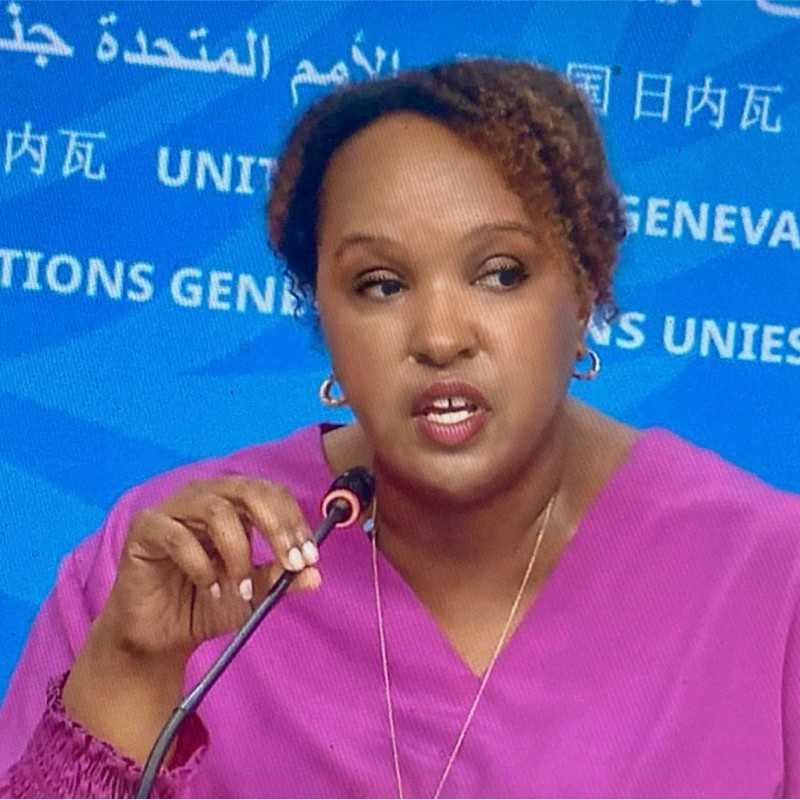
AlumLine: Are you always thinking about the next thing, or do you wait for that moment of “it’s time to move” hit you?
Hughes: The thing is, now I’m a parent and I’m a single parent, so it’s not as simple as letting the moment hit me. Sometimes it’s good to be in that moment and be a little bit uncomfortable because sometimes growth means taking what you can learn from [being uncomfortable].
AlumLine: Do the stories of refugees you’ve worked with influence your drive for your work?
Hughes: It definitely influences my drive because those stories need to be told. If everyone just throws up their hands and says, “the world is terrible. I’m not even going to try,” there will never be any change. And this is part of the core of who I am: I’ve always been a big believer that you can reach people by policy and law, but the policies and laws never change until people feel it. Not just see it, not just read it, but feel it. And they feel it through things they relate to, through storytelling. We had a story come out from South Sudan about a refugee who was living there. They asked her, “what do you miss most about home?” And everyone thought she’d say, “my mother’s cooking” or something like that. What she said was, “I had the most amazing [Korean Pop boy band] BTS collection. I had their posters, their music, everything, and I had to leave it when I fled.” Just like any other teenager in the world. Those connections, that’s the shared humanity.
AlumLine: Do you have hope for the future and, if so, what gives you hope?
Hughes: You can’t do this job if you don’t have hope. It’s just not possible. What gives me hope is, I don’t care how dark it is, there’s always light. I fundamentally believe people are good.

AlumLine: Are you still “here”?
Hughes: That’s my ethos. The exact line [from the Beyonce´ song, “I Was Here”] is: I was here, I lived, I loved, I was here/I did, I’ve done, everything that I wanted/And it was more than I thought it would be/I will leave my mark so everyone will know I was here. I want to live my life so the world can know I was here, that’s what drives me and I don’t think that will ever change. The only difference now is I have a child, so just by her existence people will know I was here – by making her my priority in a way that she grows up to be a healthy, resilient, thoughtful, productive, and loving member of society. It’s much less about what will my collection of accomplishments be versus what legacy did I leave in my love for her?





